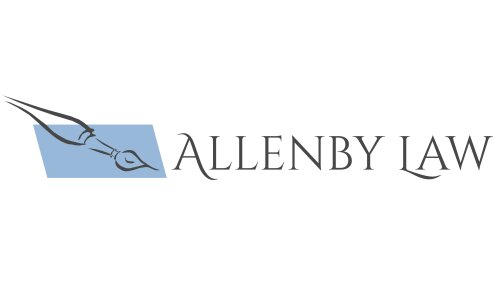Best Natural Resources Lawyers in Fort McMurray
Share your needs with us, get contacted by law firms.
Free. Takes 2 min.
List of the best lawyers in Fort McMurray, Canada
About Natural Resources Law in Fort McMurray, Canada
Fort McMurray, located in the northeastern region of Alberta, is one of Canada's most resource-rich areas. Known for its substantial oil sands, that are among the largest in the world, the region plays a vital role in Canada's natural resource sector. Besides oil sands, Fort McMurray's natural resources include forestry, minerals, and water resources. The development and management of these resources have significant legal and environmental implications, making the area a focal point for natural resources law.
Why You May Need a Lawyer
Individuals or businesses in Fort McMurray may require a lawyer specializing in natural resources law for several reasons. Common situations include navigating the complex regulatory environment surrounding resource extraction, mediating disputes over land or resource access rights, ensuring compliance with environmental protection laws, securing permits, and handling any litigation that arises from resource-related activities. Legal expertise is crucial to address these multifaceted and jurisdiction-sensitive issues.
Local Laws Overview
Natural resources in Fort McMurray are governed by a range of federal, provincial, and municipal laws. Alberta's Oil Sands Conservation Act and the Environmental Protection and Enhancement Act are key provincial laws that regulate the exploration and extraction of natural resources. Fort McMurray also adheres to federal legislation, such as the Canadian Environmental Assessment Act, which mandates assessments for projects affecting the environment. Abiding by these regulations is necessary to ensure sustainable resource development that meets governmental standards.
Frequently Asked Questions
What are the key environmental regulations in Fort McMurray?
Fort McMurray's natural resources activities are primarily governed by Alberta's Environmental Protection and Enhancement Act, along with specific federal environmental policies to ensure sustainable development.
Can individuals own mineral rights in Fort McMurray?
In Alberta, the provincial government owns the majority of mineral rights. Individuals or companies must obtain rights through leases to explore or extract minerals.
What permits are required for resource extraction?
The necessary permits vary by resource type but generally include exploration permits, extraction licenses, and environmental approvals from relevant government bodies.
How are disputes over land use resolved?
Disputes can be resolved through negotiations, mediation, or legal proceedings. Engaging a lawyer can facilitate these processes by providing legal guidance and representation.
What is the role of the Alberta Energy Regulator?
The Alberta Energy Regulator is responsible for overseeing the safe, efficient, and environmentally responsible development of Alberta's energy resources, including those in Fort McMurray.
How does Indigenous land rights affect natural resource activities?
Indigenous land and treaty rights must be considered in resource development. Consultation and accommodation of Indigenous communities are legal requirements for projects.
What are the consequences of non-compliance with environmental laws?
Non-compliance can result in fines, legal action, and loss of licenses or permits, making it crucial for businesses to adhere to regulatory requirements.
Can residents influence natural resource policies?
Residents can participate in public consultations, voice concerns to local representatives, and engage in community organizations to impact policy-making.
How does climate change legislation impact resource extraction?
Climate change regulations may impose additional requirements on greenhouse gas emissions, influencing operational practices and project approvals.
What legal resources are available for small businesses in resource industries?
Small businesses can access legal assistance through industry associations, legal clinics, and by consulting specialized lawyers who understand the natural resource legal landscape.
Additional Resources
For those seeking further information or assistance, consider reaching out to the following resources:
- Alberta Energy Regulator (AER) - Oversight and information about resource development.
- Canadian Association of Petroleum Producers (CAPP) - Industry insights and advocacy.
- Fort McMurray Chamber of Commerce - Local business support and resources.
- Alberta Ministry of Environment and Parks - Environmental regulations and conservation efforts.
- Legal clinics and university law faculties providing pro-bono legal services.
Next Steps
If you need legal assistance specifically related to natural resources in Fort McMurray, it's recommended to:
- Identify your specific legal needs regarding natural resources.
- Research and contact a law firm or specialized lawyer with expertise in natural resources law.
- Prepare all necessary documentation related to your issue, including permits, correspondences, and records of any disputes.
- Schedule a consultation to discuss your situation and develop a legal strategy.
- Stay informed about local laws and regulations by subscribing to industry newsletters or joining relevant associations.
Lawzana helps you find the best lawyers and law firms in Fort McMurray through a curated and pre-screened list of qualified legal professionals. Our platform offers rankings and detailed profiles of attorneys and law firms, allowing you to compare based on practice areas, including Natural Resources, experience, and client feedback.
Each profile includes a description of the firm's areas of practice, client reviews, team members and partners, year of establishment, spoken languages, office locations, contact information, social media presence, and any published articles or resources. Most firms on our platform speak English and are experienced in both local and international legal matters.
Get a quote from top-rated law firms in Fort McMurray, Canada — quickly, securely, and without unnecessary hassle.
Disclaimer:
The information provided on this page is for general informational purposes only and does not constitute legal advice. While we strive to ensure the accuracy and relevance of the content, legal information may change over time, and interpretations of the law can vary. You should always consult with a qualified legal professional for advice specific to your situation.
We disclaim all liability for actions taken or not taken based on the content of this page. If you believe any information is incorrect or outdated, please contact us, and we will review and update it where appropriate.








